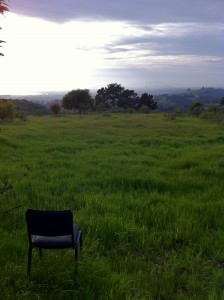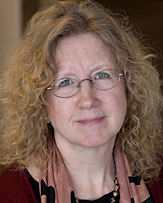 More than a decade ago, I read a book by the University of New Mexico anthropologist Keith Basso that made an enormous impression on me and forever changed the way I experience nature. Called Wisdom Sits in Places, it was a report of the authors’ several years spent studying the Apache culture of the southwestern U.S. One of its most profound contributions was to interpret the Apache relationship with place.
More than a decade ago, I read a book by the University of New Mexico anthropologist Keith Basso that made an enormous impression on me and forever changed the way I experience nature. Called Wisdom Sits in Places, it was a report of the authors’ several years spent studying the Apache culture of the southwestern U.S. One of its most profound contributions was to interpret the Apache relationship with place.
In many ways, it is impossible for those of us not raised within a culture to ever entirely understand it, so it is with caution that I approach trying to convey what was so immensely powerful about this little book. It’s also been many years now since it so impressed me, so it is possible that memory has embroidered my understanding. But the primary message I took from Basso’s reported conversations with tribal members and elders was that place matters –and it matters as more than mere location: Natural places reveal something to us about our relationships with the world and one another.
For the Apache, this means that specific places are linked with ancestral stories, moral lessons and cultural stories that teach people how to live harmoniously. Certain rock formations, for example, are understood as constituting or standing for specific characters in legends passed down across generations about how a wise person acts. Young people who are struggling are told by their elders to go to specific places. In short, natural places are understood to speak in their own terms to human beings.
In our Western culture, we are accustomed to thinking of places largely in terms of their instrumental value to us as locations for us to carry out various types of activities, so at first this idea of places as speaking may seem a little airy-fairy to us. Yet most of us have had an experience, at some time in our lives, of being in a natural place that evoked something from us, reminded us somehow of what really matters, made us feel we were part of something bigger than ourselves. For some of us this happens when we see the ocean and hear how the breathing of the waves matches our own breath. For some it is seeing Yosemite’s massive rock faces for the first time, and feeling that sense of awe at their scale and stillness. It may happen as we watch the eddies and bubbles in a stream and recognize in the patterns of water lessons about the eddies of life and death. These places, in turn, become associated with these experiences, and when we go there, we again experience that sense of awe, wonder, insight—that wisdom.
Knowland Park is not grand like Yosemite nor rapidly-shifting like the sea. But it speaks profoundly in its own humbler, quiet ways. The word abide comes to mind for me—it is a place that has abided as a whole metropolitan area has grown up around it, and it still abides in a way that speaks to us. To see a spectacular sunset from atop Knowland Park’s dark, peaceful ridgeline, the bay sparkling below, an owl swooping silently across our line of vision, is to experience a magical place that looks very much as it did 100 years ago. To see in the early morning the spring green of the grasslands, so heartbreakingly green you almost ache at the sight, is to be reminded of what Whitman observed about the grass: hopeful green stuff that reminds us of the cycle of life.
Wisdom sits in places. Knowland Park speaks quietly, subtly—it is not flashy, it does not call attention to itself, it does not offer bargain shopping or thrill rides. It is a soft, tender place, calling out our own tenderness. It abides. It deserves to be protected– so that our children’s children’s children can experience the wisdom abiding there.
 Ruth Malone is a resident of Oakland since 1983, a founding member and co-chair of Friends of Knowland Park and a longtime Oakland neighborhood activist. Since 2007, she has been working to educate and organize environmentalists, park users, and community members to protect the park. In her day job, she is a professor of nursing and health policy at University of California, San Francisco, where she helps students study the links between health and political, social and natural environments, and conducts research on the tobacco industry and its efforts to thwart public health efforts worldwide.
Ruth Malone is a resident of Oakland since 1983, a founding member and co-chair of Friends of Knowland Park and a longtime Oakland neighborhood activist. Since 2007, she has been working to educate and organize environmentalists, park users, and community members to protect the park. In her day job, she is a professor of nursing and health policy at University of California, San Francisco, where she helps students study the links between health and political, social and natural environments, and conducts research on the tobacco industry and its efforts to thwart public health efforts worldwide.
Ruth Malone’s Reflections Blog offers a combination of reflective essays and updates from the Protect Knowland Park Campaign, linking the fight to protect Knowland Park to broader environmental and ethical issues.
 Follow
Follow








Comments are closed.